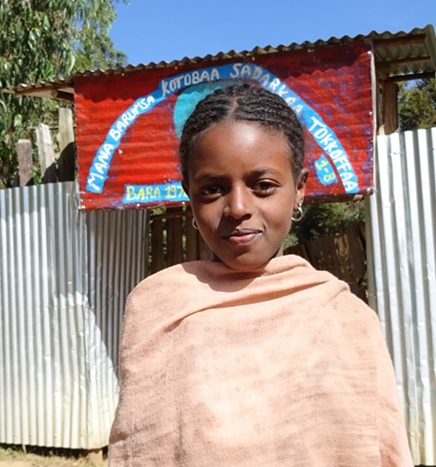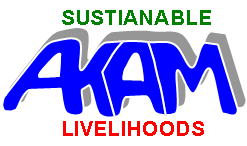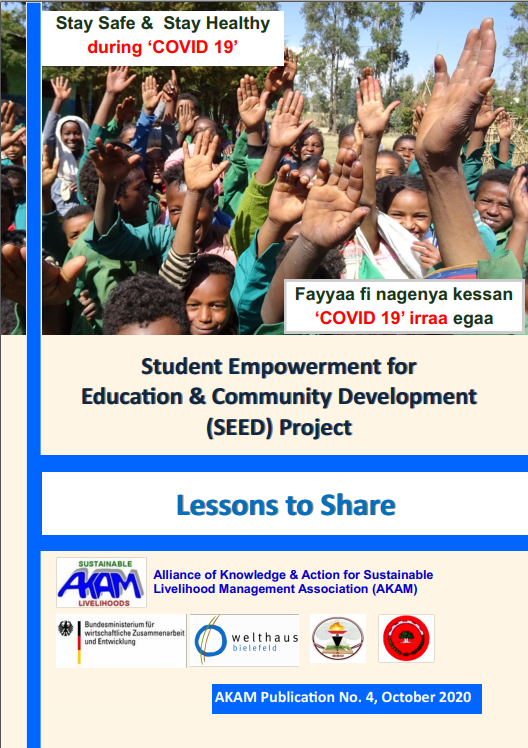Student Empowerment for Education & Community Development (SEED)
Rationale
Student Empowerment for Education and Community Development project (SEED P3318) had contributed to improvement in educational performance of students of six remote rural schools located in Dendi District, West Shewa Zone of Oromia Region, Ethiopia. The German Federal Ministry of Economic Cooperation and Development (BMZ) and Welthaus Bielefeld Municipality funded the project (Oct. 2018 – Dec. 2020). The West Shewa Zone and Dendi District Education and Finance & Economic Development line offices have provided project guidance, and M&E supports.
The key challenges identified by the targeted school communities during the baseline study were the following:
- About 71% of the students enrolled in grade 6 – 8 exceeds the right age level for the respective grades due to late enrolment and/or school dropouts.
- Libraries in five schools were non-functional & not attractive to students (rooms unclean, inadequate light and aeration, insufficient books & furniture).
- Four out six schools did not have friendly toilet facility for girl students.
- Preschool classes were not operational and tutorial services were inadequate.
- The students and teachers have poor satisfaction with school facilities.
- School clubs were not operational due to lack of support. Awareness of students about environmental protection, nutrition, and gardening were low; and schools were not adequately used as vehicles for community development.
- Parents-Teachers Associations (PTAs) were poorly functional: no school improvement plans, do not regularly hold meetings to review progress and provide leadership in school governance adequately.
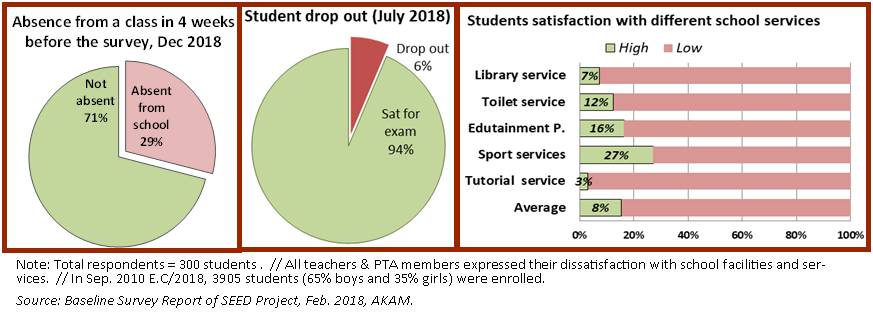
Key interventions
Student services
School families
School govermance
Learning and documentation
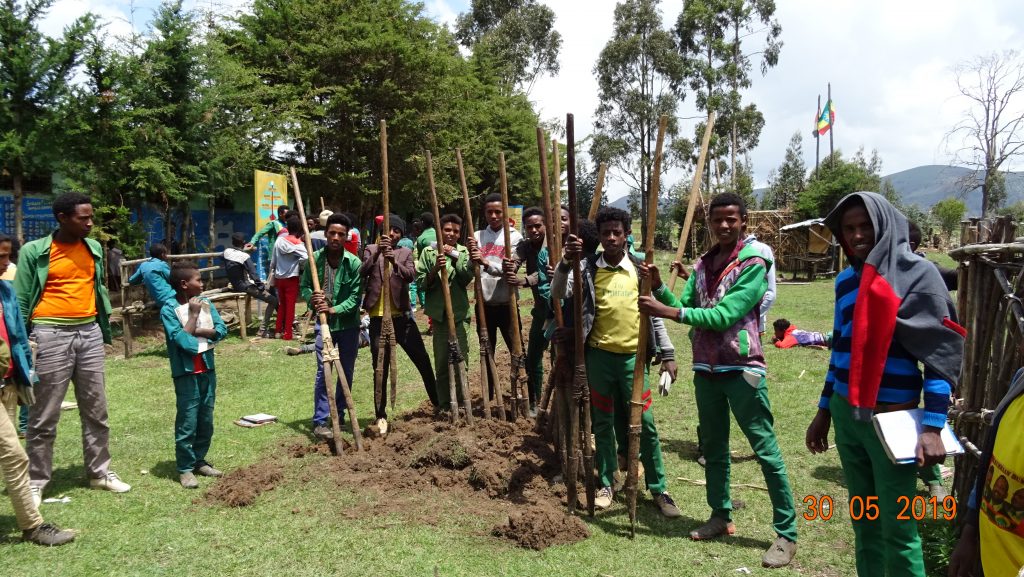
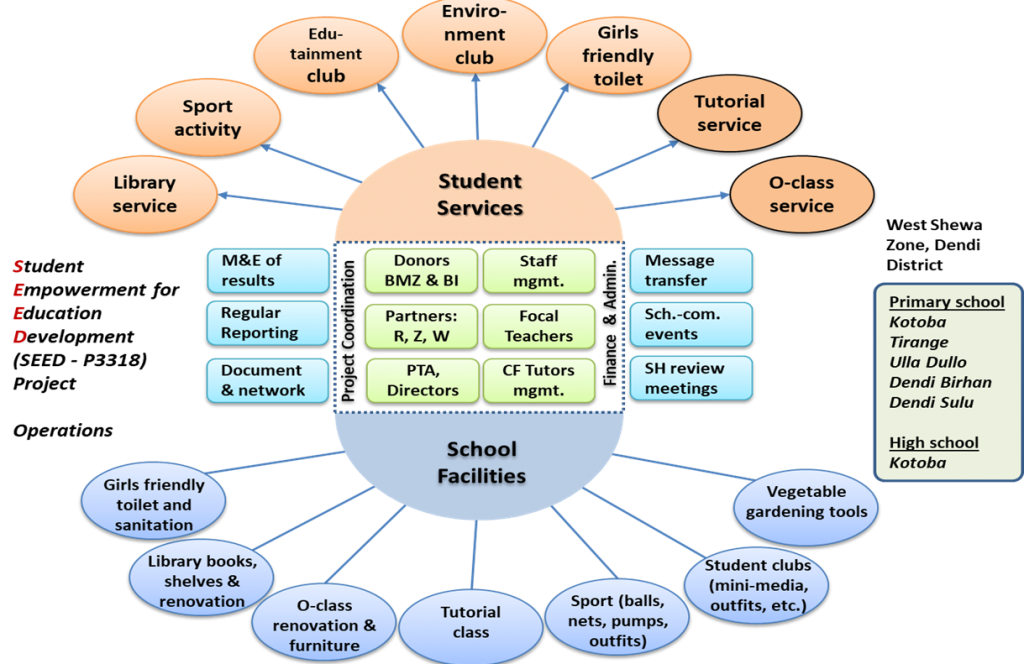
Key results
The project improved teaching and learning practices in the targeted schools and created a healthy & safe school environment for boys and girls by achieving the following results:
- Five library and 2 preschool/tutorial classes have been renovated and equipped with 730 reference books and 97 different furniture (shelves, benches, reading tables, librarian chairs & tables, and black boards).
- Four girl-friendly toilets have been constructed in three schools.
- Tutorial classes and pre-school classes are running in all schools by teachers and community facilitator-tutors employed by the project.
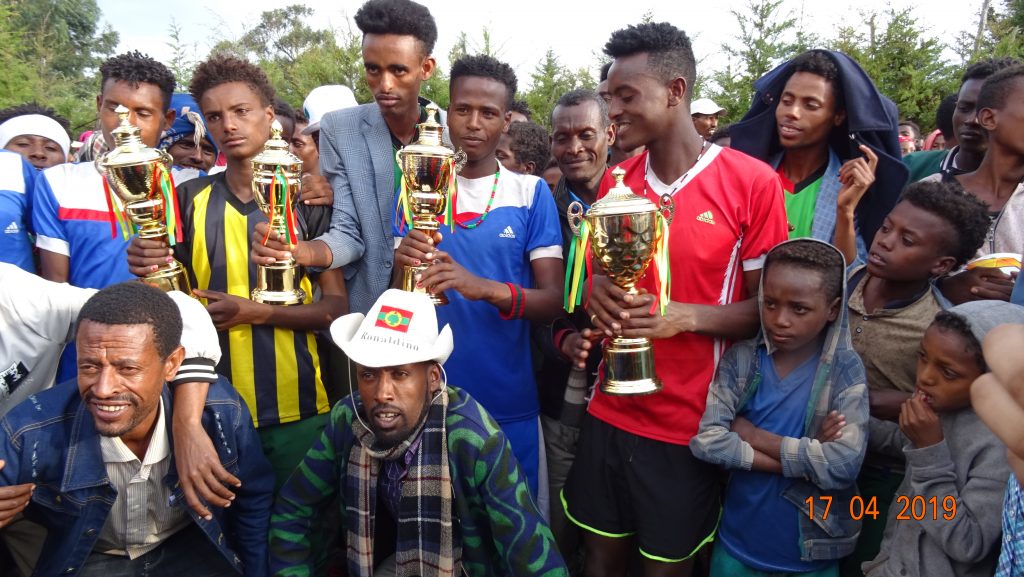
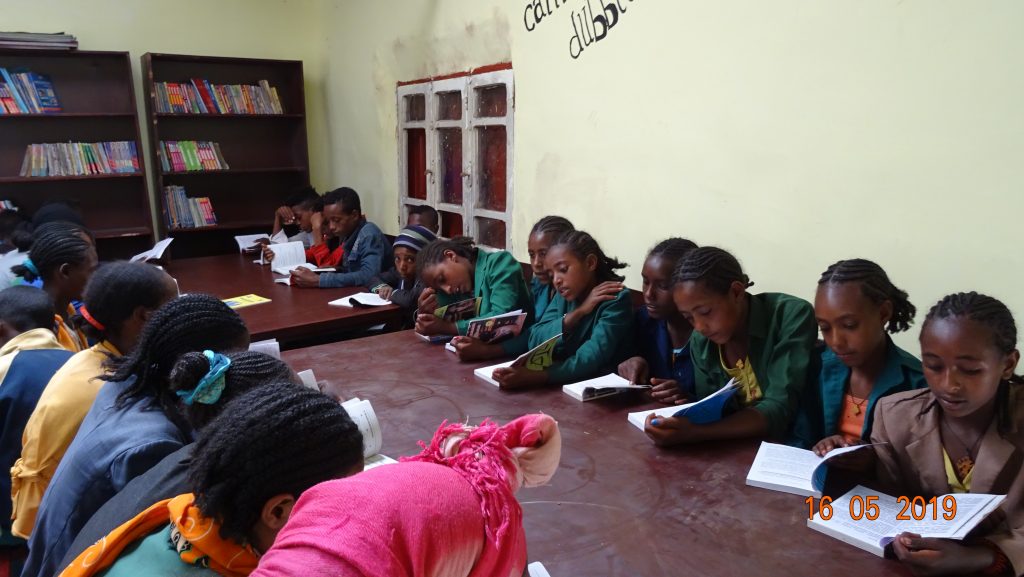
- Sport activities were strengthened through support to undertake annual competition and festival among targeted primary schools, and by providing 120 sport wears, 24 balls, 5 volley ball nets, 6 ball-pumps, and 4 cups. The PTAs in collaboration with teachers participated in levelling the playing fields and providing wooden-poles for erecting football goals and volleyball-net posts in all schools. The edutainment clubs provided educational messages through edutainment programs during friendship football or volleyball matches among schools.
PTAs' capacity before and after
Functions of PTAs have improved in the following areas:
· PTAs hold regular meetings at least once a month. 7Before: meetings were irregular, ad hoc, & high number of absentee or latecomer members, and passive in decision taking.
· PTAs reviewed implementation progress regularly during monthly and biannual meetings. 7Before: PTAs rarely undertake progress review and learning meetings.
· PTAs have analysed school problems and challenges, prioritised and prepared school improvement plan based on identified needs. 7Before: PTAs ido not undertake analysis of school performance and prepare school improvement plan.
· PTAs identified and shared good practices to others. During the leadership training, each PTA have selected and shared one good practice to other PTAs. The zonal and woreda education professionals evaluated the good practices and selected the top three for awarding. 7Before: The targeted schools had never presented a good practice for competition at woreda level before.
· PTAs participated in the evaluation of bids for construction works, supervision and approval of handover of works, and followed up functional use the facilities (e.g. library). 7Before: PTAs did not see the importance of renovation of school facilities and classrooms. The focus was on works that are visible, like fencing when the priority should have been on classrooms.
· PTAs mobilised students, parents and teachers to plant 8300 trees in in school woodlots. 7Before: they used to plant trees against payment.
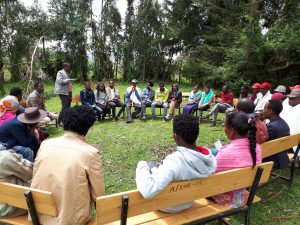
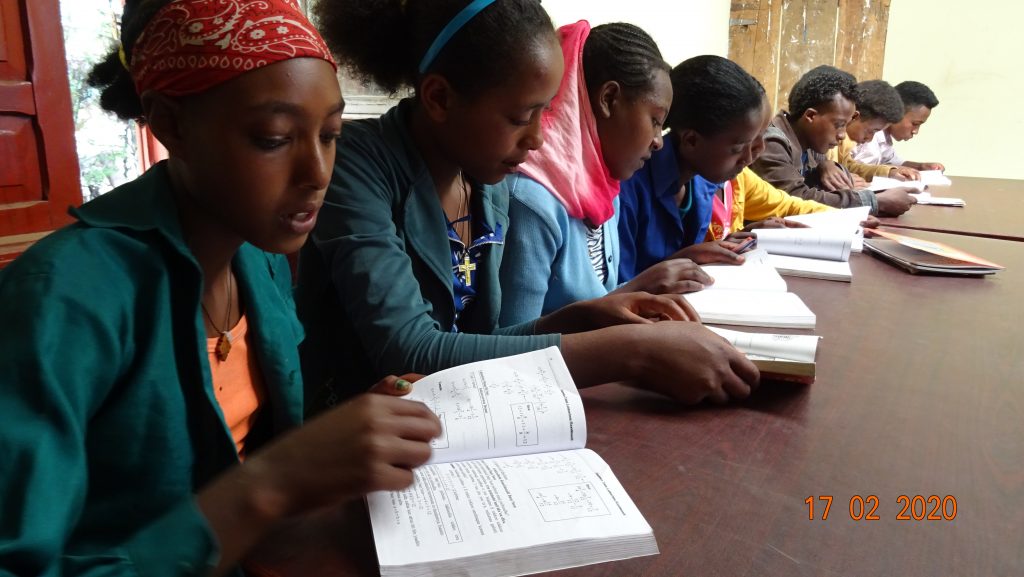
Partners

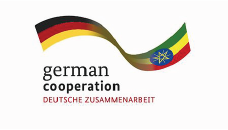
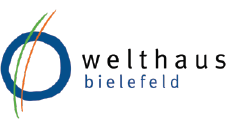
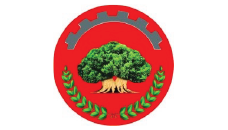
Case story
Ayantu Dinkesa (13 years old) is a 5th-grade girl student in Kotoba Primary School. Her wish is to be a teacher. After school time, Ayantu helps her mother with domestic works like wash dishes, collect dry cow dungs for fuel, fetch water, brew coffee, clean cow shed, and herding sheep and calves.
Ayantu is happy to be in a school which is half an hour walk away from her home. She states the school problem as, ‘We don’t have a good library and toilet. Our library is not attractive; it doesn’t have enough seats, tables, & books to read. The floor and walls are full of cracks since they are made up of mud. The room is dark and did not have adequate light and aeration. Similarly, we have only one dilapidated toilet for boys and girls. I afraid using this toilet when boys were around. Rather, like other girls, I run to home or nearest hidden place when I need a toilet urgently, often cutting my education’.
Ayantu wishes to have a clean and alltime open library where to read books and do her homework. Ayantu stated improvement in school facilities she would like see. She said, ‘I will be busy helping my parents after school and I have no time for doing my homework and reading what I have learned. I wish I get a tutorial class to support my education. I wish we girls have toilet that is separate from boys. I want to join in school clubs to develop my drama, music, sport, and gardening skills with other students’.
